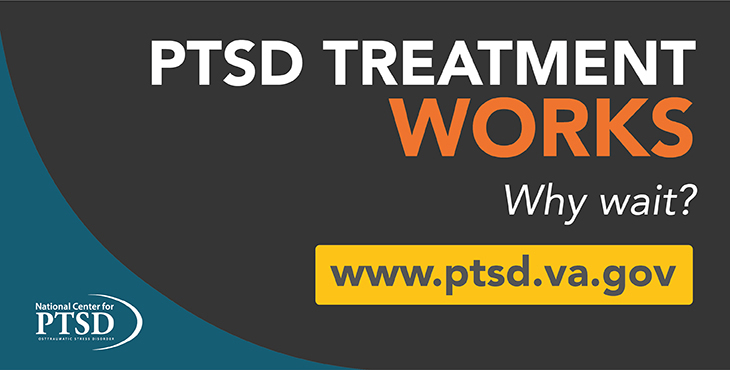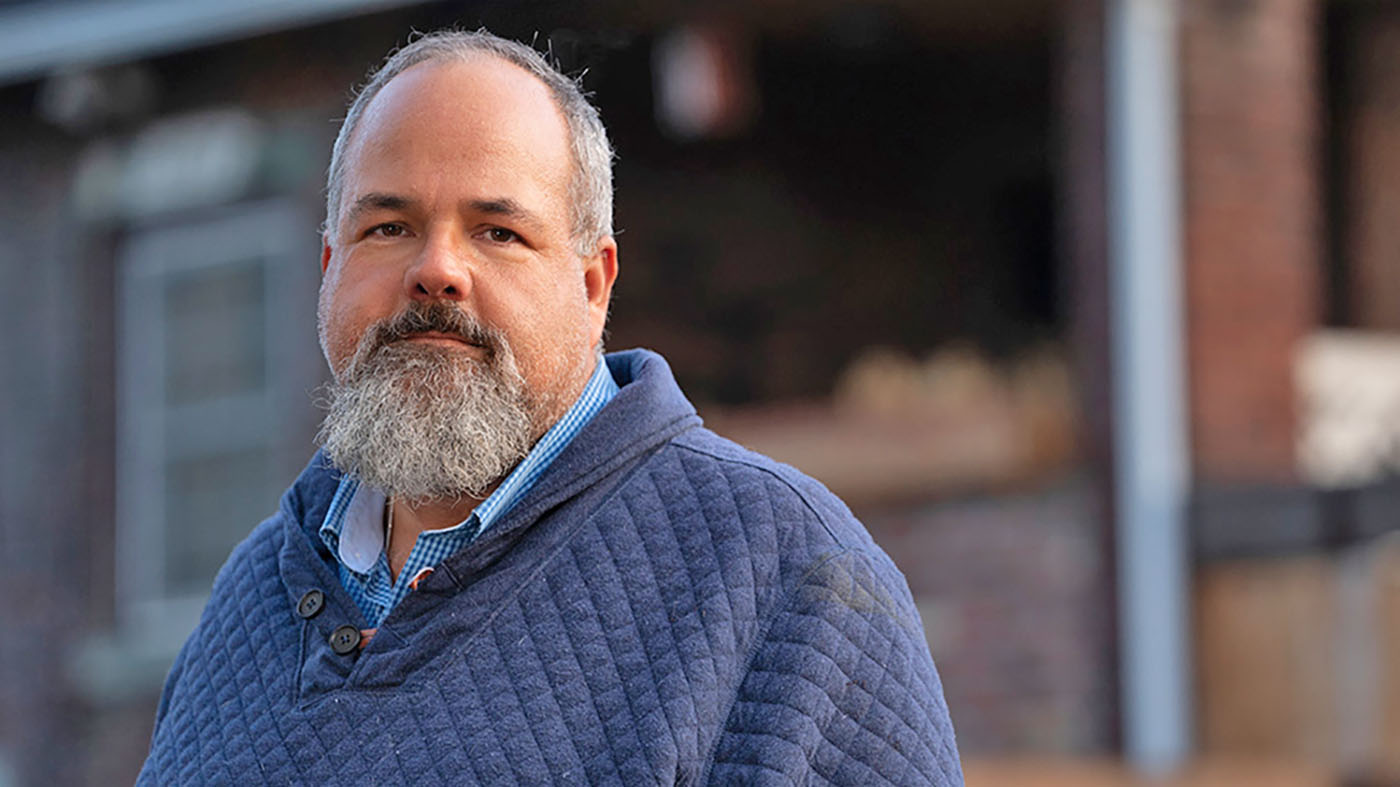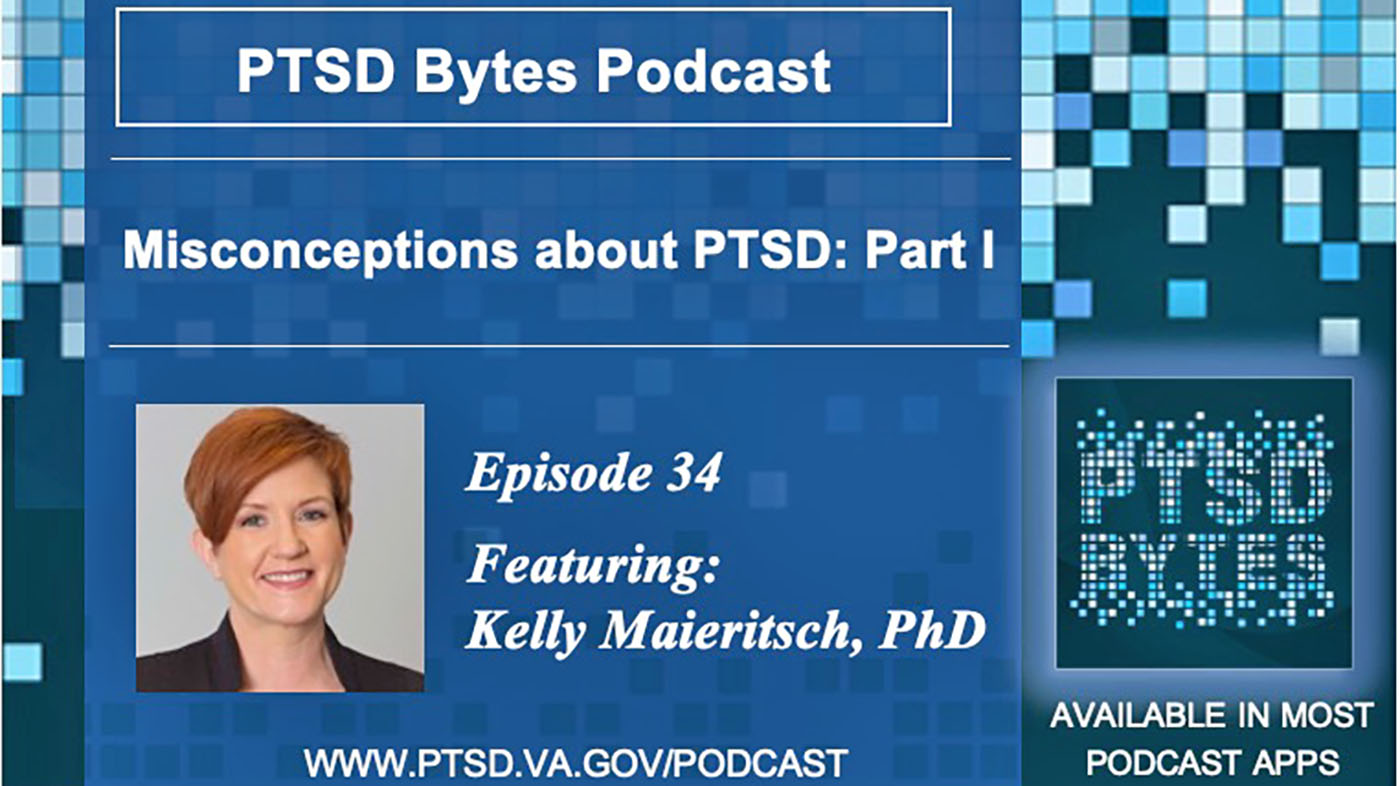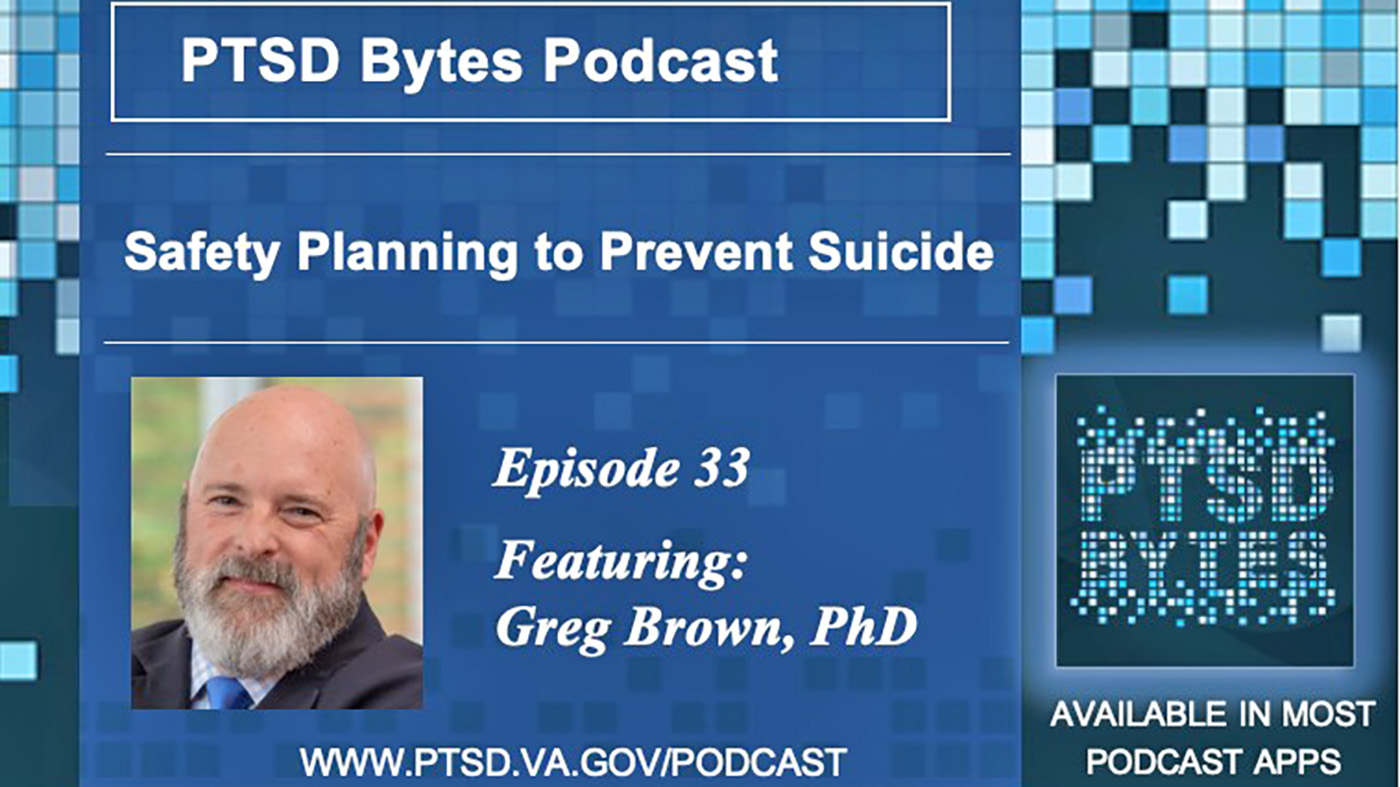About 8 million Americans have PTSD in a given year, and nearly 8 percent of the population will experience PTSD at some point in their lives. Here are 8 things to know about PTSD and effective treatments from VA’s National Center for PTSD:
- You don’t have to be a combat veteran to have PTSD.
PTSD is often thought to be a “military problem” that only happens to war Veterans. That fact is that any experience that threatens your life or someone else’s can cause PTSD. These experiences, also called traumatic events, include sexual assault, natural disasters or serious accidents. During this kind of event, you may feel like you don’t have control over what’s happening, and you may be very afraid. Anyone who has gone through something like this can develop PTSD.
- Not everyone who experiences trauma develops PTSD.
At least half of Americans go through a traumatic event in their lives. Among people who have had trauma, about 1 in 10 men and 2 in 10 women develop PTSD. After a traumatic event, it’s normal to think, act, and feel differently than usual — but most people start to feel better after a few weeks or months. Talk to a doctor or mental health care provider (like a psychiatrist, psychologist, or social worker) if your symptoms last longer than a few months, are very upsetting, or disrupt your daily life.
- PTSD can happen to anyone, and it is not a sign of weakness.
Some things may make it more likely you’ll develop PTSD — for example, having very intense or long-lasting trauma, getting hurt, or having a strong reaction to the event (like shaking, throwing up, or feeling distant from your surroundings). It’s also more common to develop PTSD after certain types of trauma, like combat and sexual assault. But there’s no way to know for sure who will develop PTSD.
- PTSD Treatment Works – and you deserve to get help.
There are a number of treatments for PTSD that are proven to help. For some people, treatment gets rid of PTSD altogether. For others, it can make symptoms easier to manage. Treatment gives you the tools to deal with symptoms, so they don’t keep you from living your life. Even if you’ve been struggling for years, PTSD treatment can turn your life around.
- You now have more PTSD treatment options than ever.
The PTSD Treatment Decision Aid is a great way to learn about your options and consider which treatment is right for you. Watch videos of providers explaining how treatments work. Then, build your own comparison chart of the treatments that you prefer. Share a printout of the chart with your provider as you decide together which treatment best meets your needs and goals.
- If you have PTSD, you might have other health problems.
If you have PTSD, it is possible that other problems affect your health too. Depression, sleep problems, alcohol and drug abuse, thinking about harming yourself — even suicide – are more common if you have PTSD. PTSD is also related to problems at work, in relationships, or with your physical health. Sometimes, these problems happen because of your PTSD symptoms. For example, feeling numb and avoiding places can make it hard to have good relationships with your friends and family. Getting treatment for PTSD can help with these other problems, too.
- When PTSD isn’t treated, it usually doesn’t get better — and may get worse.
It’s common to think that your PTSD symptoms will just go away over time. But this is very unlikely, especially if you have symptoms for longer than a year. Even if you feel like you can handle your symptoms now, they may get worse over time. Getting treatment can help you live the way you want to.
- If you have PTSD, it’s never too late to get treatment.
Treatment helps even if your trauma happened years ago. And treatment for PTSD has gotten much better over the years. If you tried treatment before and you’re still having symptoms, it’s a good idea to try again. The sooner you get treatment, the sooner you can start to feel better.
There are also self-help options to get you started – from free mobile apps to online courses that can help you and your loved ones cope with PTSD and related issues.

Topics in this story
More Stories
Be ready before a suicide crisis by learning about resources that are available. You don’t have to face it alone.
In a two-part series, Dr. Colleen Becket-Davenport discusses some common myths surrounding PTSD with Dr. Kelly Maieritsch.
In this episode of the PTSD Bytes podcast, we speak with with Dr. Greg Brown, Philadelphia VA clinical psychologist, about how safety planning can prevent suicide.







Actually, when the troops came back from WWI, and the VA was in its infancy, they were required to fill out a form that was , basically,designed to predict a psychological profile. The military and the government has known for quite some time that PTSD exists.They just didn’t know what to do with it. I am almost certain that my Father suffered from it.
I studied ptsd for 2 years – did a lot of research on this subject – interviewed many doctors in all fields – then I wrote a paper bout it and a way to cure this without meds – I would like to send a copy of this to you – have lost 7 friends from this – would you be interested in reading this if I sent you a copy – it’s 7 pages – if so where do I send it to – this is not a scam – am very serious bout this – I don’t think your doing this rite – rich – xxx-xxx-xxxx- you can also call me anytime – I really think you should read this – also did you know that after the WW2 va had things at va that addressed this issue – then the drug people got involved and that was the end of that – call me or write me an address that I can send it to you = rich
I’ve not been diagnosed with PTSD, but I know it’s with me.
I’ve lost my father at age 3,, got totally screwed on my enlistment, and I’ve lost 5 sons. 4 to miscarriage and one to murder. I’ve also broken my back 6 times. 5 times doing concrete construction and once on a motorcycle.
I appreciate your help.
I think that for the most part, V.A. is worthless. They’d be better off just closing their doors.